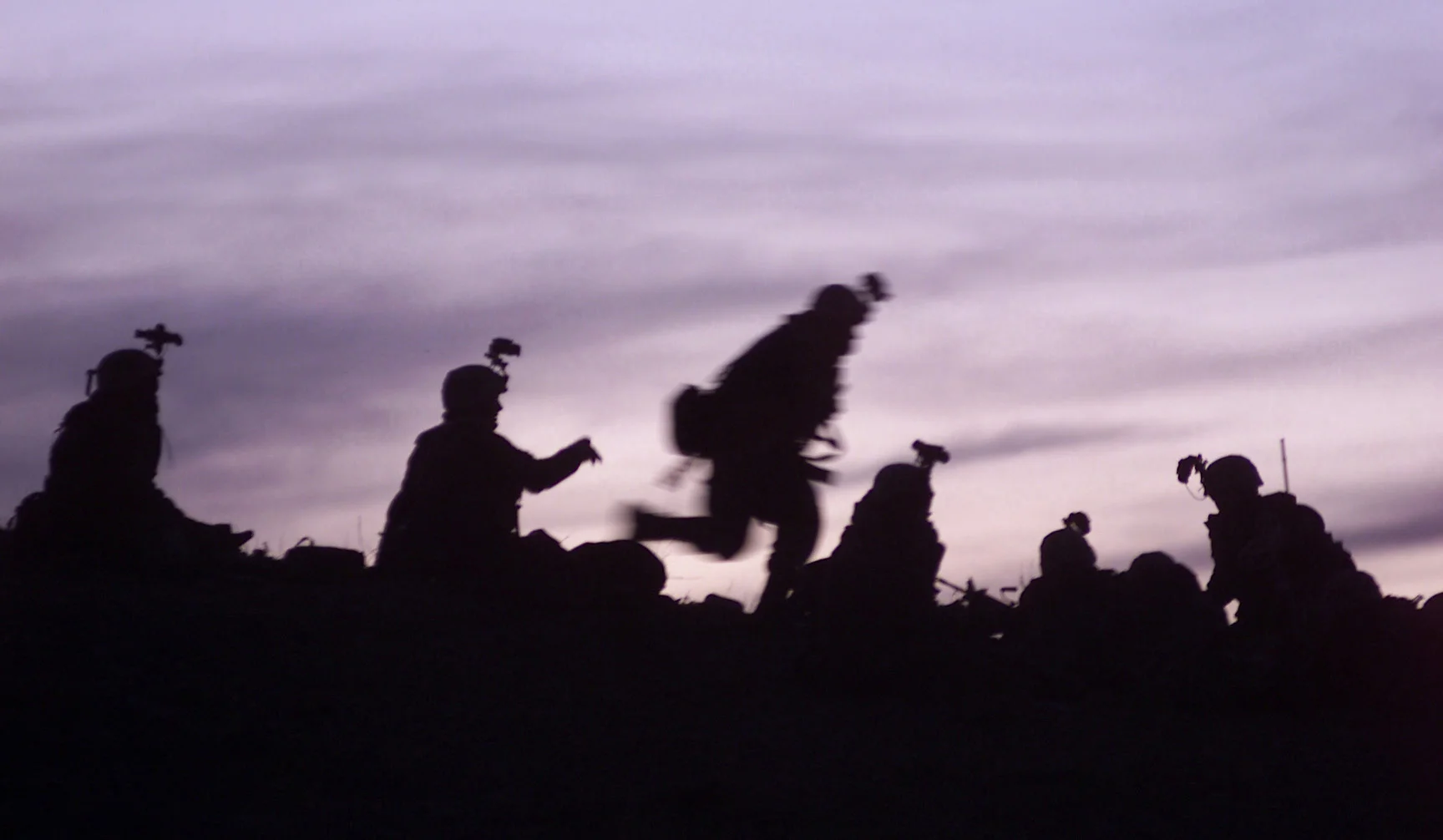This is not a book about war. It is a book about humanity interacting with chaos, some directed, and some without direction. War is just a part of the social collapse and momentous struggle of rebuilding Libyan society described in the book. In not letting the reader’s vision narrow to the battles and materiel, Wehrey highlights the importance of context to strategy.
Lethality: An Inquiry
Left undefined, lethality risks the fate of many insufficiently elucidated but well-meaning concepts. It is imperative the concept is properly understood, otherwise the word will saturate PowerPoint slides bereft of insight. Given the theoretical grounding it deserves, lethality provides incisive structure. It forms the backbone and guiding intent underwriting the litany of defense actions, processes, and programs: from doctrine, organization, training, and materials to leadership, education, personnel, and facilities. Understood tactically, organizationally, and strategically, lethality hones a latent ethos. Word choice matters, which is the point. The National Defense Strategy is a well-informed and insightful guiding document, but lethality deserves unpacking.
A Strategic Mindset
Without the right mindset, even the most tactically competent force becomes vulnerable to strategic missteps, and, in the worst case, strategic defeat. Although we can never predict the future with perfect accuracy, we can benefit by trying to understand the parameters and to build a mindset in the force that will help the future leaders address the challenges they will likely face. If soldiers can progress beyond learning what to think and how to think, and learn how to approach thinking, they will be better able to overcome the novel and complex adaptive strategic problems of that future, whatever they may be.
Terrorism in Civil Wars
Terror tactics are used for different reasons depending on the time of the civil war. Once the war has begun, terrorism is used to stimulate it. Before or in the beginning of the civil war, terrorism is used to convince the local population of the need for a revolution by attempting to change the beliefs of the people and intentionally getting them on board with violent methods. At the end of the war, terror tactics have been used to delegitimize the peace.
#Reviewing Learning War
This is an important study that dramatically advances our understanding of innovation and the importance of non-technological factors, particularly the development of learning systems, in successful innovation. It will be of use to scholars of both innovation and the U.S. Navy, as well as those with a general interest in those subjects.
The Failed Thermostat: The Illusion of Control In an Information-Rich Age
There has been too much effort by senior leaders, civilian and military, to make war into their own image rather than accept war for what it is. In their efforts to control the image of war, these leaders have deluded themselves and their subordinates. Senior leaders still appear to believe they are adjusting a kind of military thermostat. This is a delusion. The delusion has proven tragically costly.
The Strategic Crisis in the American Way of War: A Global Discount Security Shop?
Why has the U.S. failed to see any conclusive strategic victories in any of its recent conflicts? Second, within the context of a changed global post-cold-war strategic order and a massive American globalized infrastructure in place to support military operations, is the inability of the U.S. to be successful a failure of the American way of war or a failure in strategy as it relates to the American way of war? Instead of trying to answer each puzzle, we seek to define the contours of it. We argue American strategy has become increasingly incoherent. This is the product of a stagnant American political system that led to an incredibly effective military, but one that is strategically incapable due to it being a global discount security shop.
#Reviewing Surviving Amid Chaos
#Reviewing The Future of Strategy
Great Expectations: The Case of Horatio Nelson and the Role of Confidence in Military Genius
Charles Dickens fans should note that this article is not about one of your favorite Victorian novels. Rather, it examines the case of Admiral Horatio Nelson, Baron of the Nile, and how his expectations of what his military operations might accomplish often matched the results. Secondarily, this characteristic of great expectations aligns nicely with attributes in Carl von Clausewitz’s exposition of military genius in On War. Finally, both Nelson’s approach, and Clausewitzian examination of the concept of military genius have a direct bearing on how officers command at sea.
The Coming Storm: Ethics in the Next War
The strategic demands of a great power war with a peer-adversary—the high-end conflict—will inevitably push decision-makers to the pale of that which is ethically permissible. We have seen it in the two great wars of the 20th century. In the next great power war—and one hopes it never comes—western states will put their strategic and operational capabilities to the test. But such a war will also test the moral will of their citizens—the people in whose name the killing and dying will take place.
#Reviewing The Free Sea
When one picks up "The Free Sea: The American Fight for Freedom of Navigation" by James Kraska and Raul Pedrozo, they will soon find themselves asking if this book is a diplomatic history, a history of the merchant marine, a naval history, or a political history. The Free Sea is, in fact, all of these.
From Screen to Paper: Redefining the Modern Military
The professionalism of Western militaries is ripe for another discussion. The practitioners who make up the profession of arms—and those that study and teach them—owe it to their citizens, their governments, and themselves to shape their forces, and educate their professionals, in preparation for the future. It is their duty to ensure they are prepared to ethically and effectively achieve the military objectives their leaders lay before them, no matter the adversary or the context of the conflict.
The Tale of the Tail that Wagged the Dog: #Reviewing Integrating the U.S. Military
Integrating the US Military is not a state-of-the-field type of book. It is, rather, a challenge to those of us who ply our trade in this profession to make the connections necessary to the larger issue of the role the American armed forces play as a reluctant social reform apparatus. In their insightful conclusion, the editors of the volume recognize the traditionally conservative organization has always been at the forefront of change—whether racial, gender, or sexual.
Leveraging Regional Expertise to Counter Influence Operations
All branches of the armed forces have recognized the need for language and culture awareness training as important for military operations, and each service now has a language and cultural awareness training center designed to teach these critical skills. While these language and cultural initiatives are a step in the right direction, they are simply not aggressive enough to counter the rise of influence operations, or actions designed to produce a desired outcome on a target audience, which are becoming more prevalent as information and technology continue to reach more of the world’s people.
#Reviewing The Battle of Arginusae
In the end, Arginusae was important not just because it was the last Athenian victory in the war, or because it was a shameful event in the history of Athens, but because of the hostility it caused towards Athenian democracy. The book closes with a brief look at the end of the Peloponnesian War and the damage done by Arginusae to the reputation of Athens in the millennia since the battle was fought. This book makes it eminently understandable how great that tragedy was.
Re-Emergence: A Study of Russian Strategy in Syria, the Middle East and Its Implications
Russian strategy in Syria and the broader Middle East consists of supporting what it considers legitimate institutions through extensive foreign aid programs, including economic and security assistance, political support and, as seen in Syria, direct military intervention. However, there are caveats to this strategy that include history, policy goals, and the ability to exploit lack of foreign attention to Russian activities and capabilities.
Lost Blue Helmets in Wars Among People: Revitalizing UN Peace Operations for the Context of Modern Warfare
Fighting and Winning in the Information Age
The economic, social, and technological trends of the Information Age will undoubtedly have a big impact on the way that militaries fight. Yet, two things do not change: the nature of war, and the need to win. To win, militaries must move beyond the old methods of the Industrial Age. There is a need to develop capabilities in a more cost-efficient and operationally effective way. Militaries must leverage the power of networks, remain open to new ideas and continue to improve how they develop their people.
Strategy and the Instrumental Role of Emotions
Emotions are abundantly present in contemporary warfare, and various non-state actors, in particular, use acts of terror to invoke fear in target audiences. The same emotion is also central to the successes or failures of deterrence. Various intra-state conflicts in Central Africa are waged for the most emotional of causes, usually a mixture of greed and grievances. It seems the role of moral factors has actually expanded in modern warfare due to the influence of real-time mass media on public opinion. Despite their abundance, emotions are largely ignored by students of strategic studies.





















